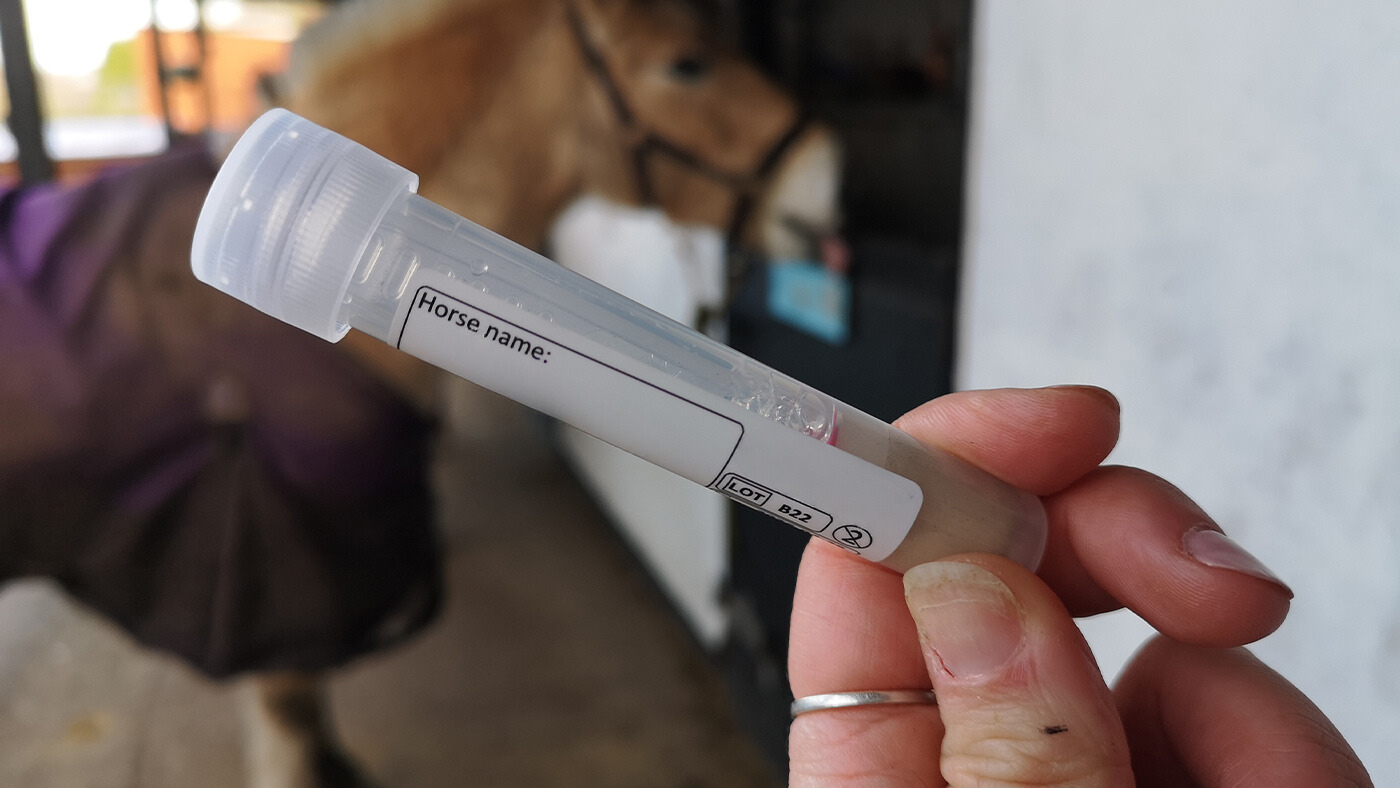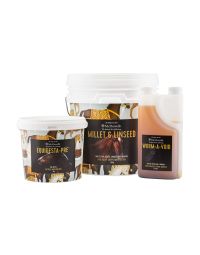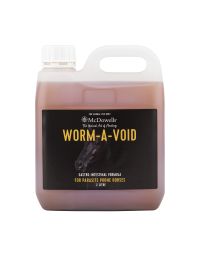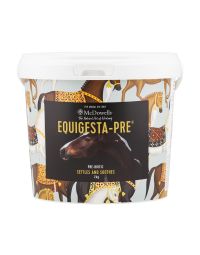In autumn, as the temperature drops and the ground conditions become soft and muddy, this is a common time for horses to develop signs of a parasite infection, especially tapeworm, redworm and bots – none of which will show up in a standard faecal worm egg count.
Worm cycles are interrupted by dry periods and frost, the likelihood of herd infestation is lowered. Generally, the milder and wetter the better for parasites; warm weather stimulates feeding and breeding and the damp weather creates a favourable environment for parasites.
Spring and Autumn are the worst seasons for worm infestations.
TYPES OF WORMS AND SYMPTOMS – AUTUMN
Heavy infestation of worms can cause respiratory signs, such as a cough and nasal discharge as the larvae journey through the lungs. An infestation can cause intestinal signs such as weight loss, a pot-bellied appearance, diarrhoea and in some cases, even sudden death.
Encysted small redworm
Small redworm are the most common and seemingly dangerous parasite threat to horses. These are the larval stages of the small redworm that hibernate in the lining of the gut, waiting to “wake-up” in spring. The small redworm is up to 2.5cm long, thin and usually reddish in colour, with the unfed worms appearing white. Long-term, small redworm infestation can seriously damage your horse’s intestinal wall and reduce their ability to absorb crucial nutrients. The mass emergence of encysted small redworm can be catastrophic - leading to larval cyathostominosis, causing diarrhoea, colic and even sudden death.
Large/Adult Redworm
Large/Adult redworms are a darker red than their junior encysted small redworms and can grow up to 5cm long. Even though large redworm numbers have reduced significantly over the years, they still have the capability to cause significant damage in horses. They can cause blockages in blood vessels, causing damage to vital organs and potentially triggering life threatening haemorrhages and internal bleeding. The symptoms of large redworm are like that of the encysted redworm, and can cause weight loss, distended stomach and a dull coat.
Tapeworm
Tapeworm live between the ileocecal junction and small intestine of a horse. They “sucker” onto the horse’s gut wall and live off the food that the horse eats. This can cause significant damage to the gut tissue and cause serious problems such as diarrhoea, weight loss, colic, intestinal blockages and even death. Some of the biggest clinical signs for tape worm in a horse are a high heart rate, decreased or increased intestinal peristalsis and nipping at sides.
MANAGING YOUR HORSE’S ENVIRONMENT
It is important that you control the exposure of parasites. For that, you should provide your horse to a relatively clean pasture field and importantly keep the horse stalls clean.
It is also crucial to ensure that your horse’s hooves are not submerged in wet and muddy ground for too long, and if they are, clean them.
You must keep manure under control especially if you have a high animal population on small acreage. Manure is the perfect transport for worms from one horse to another. Keeping manure under control helps break the lifecycle of the worms, reducing the reliance on chemicals.
Using biodynamic soil sprays, basalt and dolomite to condition the soil is also part of managing the whole system in balance. Encouraging natural forages of lava and eggs is part of well-nourished balanced eco-system and will keep parasite levels in check.
MANAGING YOUR HORSE’S WORMS
Besides the obvious, (drench resistance that can occur with the overuse of anthelmintic and other well-known systemic chemical parasite controls), using harsh chemicals for preventing/treating worms in your horse causes damage to the lining of the Gastrointestinal System, as well as liver and kidney damage.
Any toxic load on an animal’s system will compromise these organs, as chemicals are cleaned out of the system via the normal metabolic process. Any toxicity not cleared naturally will be stored in fat and released again when the system can finish its processing.
If this is not cleared, the system becomes compromised resulting in lowered immunity, never really catching up its metabolic "housekeeping".
Giving bitter herbs is not popular in our modern age when we all seek treatments which are sweet flavoured and nice to take. There is a place however, for astringent and bitter tonics in digestive system health.
There is no herbal treatment which will kill all worms and register a zero count in a blood test. Worms evolved along with all animals' digestive ecology, and if the horse's general health is properly supported, any infestation will be controlled so that it does the horse no harm.
The herb Wormwood was used for hundreds of years to assist in managing worm loads in people and animals alike. This herbal wormer is safe for the host, has no side effects and discourage worms and reproduction by making the animals system healthier.
Herbs can also be used to help detox from the negative effects of chemical drenching, whilst assisting your animal to manage the worm loads. This is a much more realistic target and can be done using a number of different approaches.
McDowells created a mixture of traditional anti-parasitic herbs including Wormwood, Chinese Rhubarb, Tansy, Burdock, Flax Seed, Cloves and Garlic. These herbs work by toning up the wall of the gut, while at the same time helping to expel worms. Regular use leaves the gut healthier than before and more able to manage a natural and harmless worm load. These herbs are steeped in raw apple cider vinegar, and specific dosages are given in a set program over weeks. Aloes, Elecampane and slippery elm powder are also crucial herbs, helping heal damage to the lining of the gut and making the environment and GIT ecology much healthier.
There is no resistance build up, nor chemical residue to deal with.
McDOWELLS WORMING PROGRAM
Our worming protocol consists of Worm-A-Void, Equigesta-Pre and ground millet and linseed.
Worm-A-Void
This tonic may improve gut health by supporting a healthy microbiota and may assist the system to expel worms naturally. Can be also be used as part of a normal drenching rotation program.
Equigesta-Pre
Equigesta-Pre contains a combination of pure herbal powders, brewer's yeast and bentonite clay. Traditionally this combination has been used to aid and promote beneficial intestinal microorganisms. Our unique blend can be used daily as an equine prebiotic to support and stimulate the growth and activity of good bacteria in the digestive system.
Millet and Linseed
Millet contains especially high levels of organic silica compounds as well as carbohydrate and many other minerals. Linseed is a whole feed source of Omega 3 and 6 and Linoleic acids.



